![]()
Beyond Silicon Valley
Historically start-ups had been born in Silicon Valley and more recently London but now they have been happening everywhere. However, we are seeing certain emerging global start-up hotspots of activity in recent years, that have included Singapore, the Republic of Korea, Brazil, Israel and Kenya.
Singapore came top of the World Economic Forum’s latest Global Competitiveness Report. This is something I discussed in an earlier post regarding the huge growth in AI. Many of these are gaining huge input and support from their governments as well as VC’s and PE’s companies in 2019 this totalled a staggering $8.6 billion, more than doubling 2018 investment, many of these investments have been in the fintech and manufacturing, urban solutions, and healthcare space.
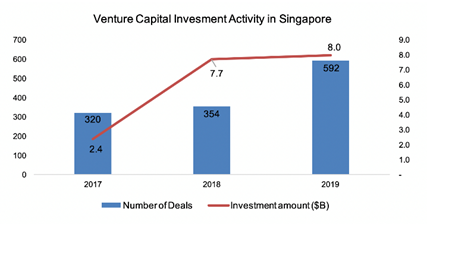
Israel, this is a country that has just kept growing, due largely to it’s start-up culture, Microsoft has helped greatly over the years but it is the aggressive entrepreneurial mindset within the country that is at its core. It is a country that has many serial entrepreneurs who spread their knowledge and experience freely to many, it has become a cultural treat. Israeli start-ups raised a record $8.3 billion in funding in 2019. Israel is now the third largest investor in AI technology start-ups, outperforming traditional investment in fintech, cyber and life sciences.
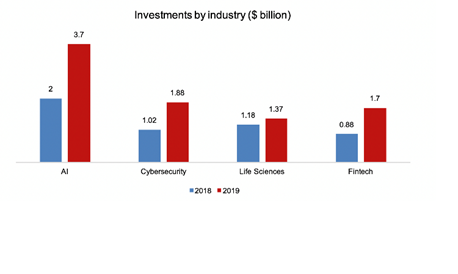
The Republic of Korea, is largely driven by its huge conglomerates such as LG & Samsung, but the government has its own program called TIPS (Tech Incubator Program for Start-ups), a state-led incubation programme, they take no equity and it’s a no strings attached program. They also created the Ministry of SMEs and Start-ups to further strengthen competitiveness and support innovation activities for start-ups. Lots of help from central government in The Republic of Korea.
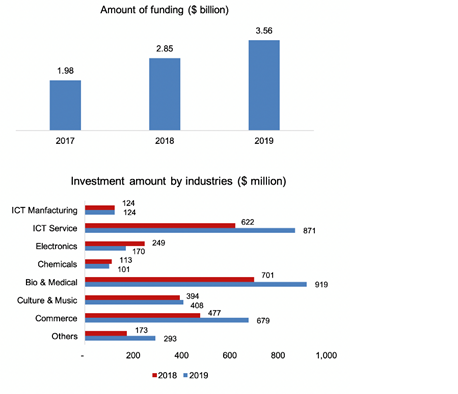
Kenya, topped $564. million investment in 2019, taking over a quarter of all the African investment and with the 5G network deployment coming soon will be a future hotspot for additional investment. However, they still need to get some things sorted to make it mega attractive for higher investment.
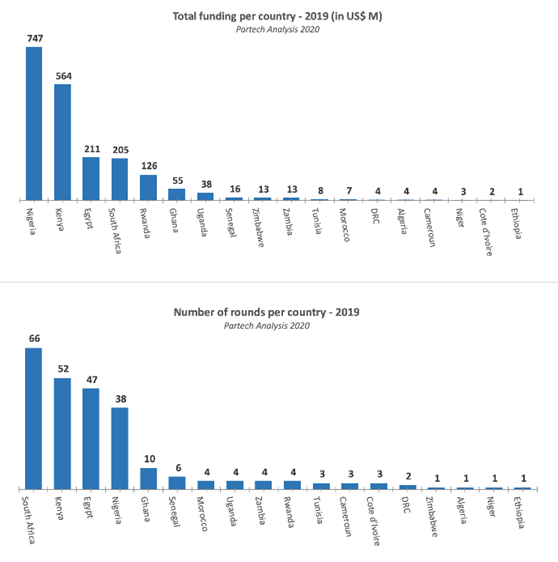
Brazil has a population of 200 million, a huge domestic market in its own right and attracts lots of foreign start-ups as a green field market due to the high ratio of mobile & internet users. The government is trying to promote local start-ups with its Brazilian Digital Transformation Strategy, which aims to standardize all federal initiatives regarding the innovation ecosystem as well as other initiatives.
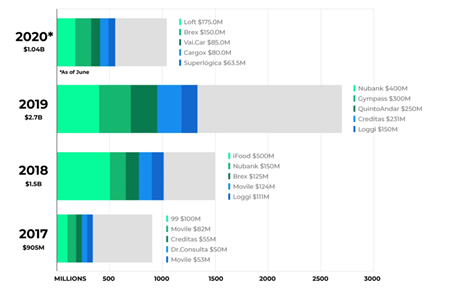
The big question for many, is what is happening in 2020 with the impact of COVID-19 will this stem the growth of these relatively new emerging global start-up hotspots as well as the more traditional areas?
We have seen some amazing growth in VC funds during 2019 & 2020, but the consensus seems to be supporting existing investments while others are still identifying & seeking new prospects that can deliver growth in a Post COVID-19 period. So, robotics, AI, anything online, education, remote working, even socialize as well as healthcare start-ups working to prevent any kind of future crisis will be looked at and money thrown at them. But many more traditional areas may have to wait, the Dice have not yet been rolled and it is going to depend on how well the government of the world cope with all these unprecedented issues and impact of COVID-19.
It has always been a competitive market and outside of the traditional VC & PE markets, governments in many of these new Hotspots are starting to step in and support the start-ups with free money. This will have an increasing impact across the traditional world of start-ups.
Will this cause an unfair playing field?
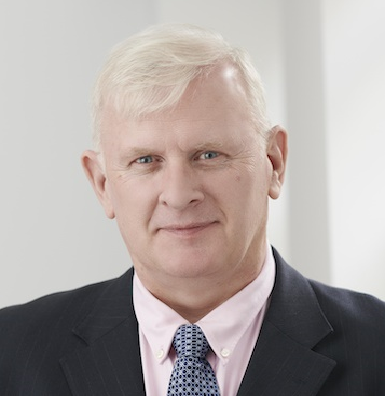 About the Author
About the Author
Howard Longstaff has over 25 years of experience delivering people within the talent acquisition arena.
He has worked extensively across the UK, Europe, USA, Canada as well as in South America, Australia, and New Zealand.
Over the last 20 years he has specialised in two fundamental areas, although he often covers a wider remit due to his thirst and understanding of technology. The first area which he has a real passion for, building ‘Sales Teams’, pulling together the very best ‘A Players’ and creating something incredibly special for his clients.
To do that, he needs to have a clear understanding of what his client wants, so establishing clear communication with the client is paramount, understanding the nuances of what they are looking for and documenting this. Understanding the technology, the opportunity, and the growth potential all help to find the ‘right fit, first time’. He is one of the few head-hunters that is willing to guarantee his work, offering 12 months free replacement.
The second area he loves getting involved in, is the leadership team, the C-Suite, helping to get the balance right, cover the gaps in knowledge, skills and experience, working on the assumption that ‘No one is perfect but a team can be’?
Howard is someone who thinks outside the box, has an eye for detail, but is perceptive, looking beyond the surface of just skills and experience. He wants to know and understand the candidate behaviour as well as the emotional intelligence, the motives that drive the candidates he interviews. He is looking for the best fit for his client but also looking to ensure it is a fit for the candidate as well.
In the last 25 years he has also built his own companies and opened offices in New Zealand, Los Angeles, New York and most recently several companies in London. Specialising in technology companies, he has delivered permanent resources across practically every department. This has predominantly been for technology start-ups (Enterprise Software Co’s) but also for many leading management consulting and enterprise clients.
Howard is someone that uses technology to enhance the hiring process, to save time, money and effort and take the pain out of the process, but to find those ‘Exceptional People, who are so hard to find’. He operates a ‘Private Client Video Portal’ keeping everything together, the video, as well as psychrometric behavioural assessments on candidates and interviewing on an emotional intelligence level. He has repeatedly built teams across three continents, so has a good breadth of knowledge across the talent acquisition arena.
